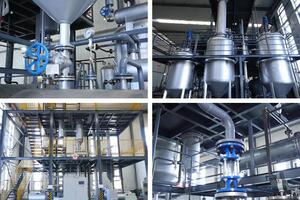-
 Find in Members
Find in Members Find in Videos
Find in Videos Find in Channels
Find in Channels
This website uses cookies to ensure you get the best experience on our website.
To learn more about our privacy policy Click herePrivacy Preference
- Tags - #Used Engine Oil Recycling
-
- Last updated December 21, 2023 0 comments, 79 views, 0 likes
More from qian liu
More in Politics
Related Blogs
From Drain Pan to Drainpipe: The Untold Story of Used Engine Oil Recycling
Body
But don't let its grimy appearance fool you, this discarded fluid holds a surprising secret – the potential for a second life. Through the magic of recycling, used engine oil can be transformed from an environmental hazard to a valuable resource, saving oil, protecting soil and water, and even powering your home.
Gone are the days of pouring leftover oil down the drain or tossing it in the trash. Responsible disposal is paramount, as a single gallon of used oil can contaminate up to one million gallons of freshwater – more than enough to fill an Olympic-sized swimming pool! So, where does this oily odyssey begin?
The Recycling Journey
- The Collection Point: Many auto shops, dealerships, and even quick lube centers act as designated collection points, happily accepting your used oil for free. Some locations even offer convenient collection bins for DIY oil changers.
- The Processing Plant: Transported to specialized processing facilities, the oil undergoes a multi-step metamorphosis. Contaminants like dirt, metal shavings, and water are removed, leaving behind a purer base oil.
- Re-refining: This base oil can then be re-refined, and transformed back into high-quality lubricating oil, ready to refill your engine or countless other industrial applications. This "recycled oil" often performs just as well as its virgin counterpart.
- Beyond Lubrication: But the versatility of used oil doesn't stop there. It can be processed into asphalt for paving roads, fuel oil for boilers, or even lubricants for non-automotive machinery.
The Benefits of Recycling
The environmental benefits of recycling used oil are undeniable:
- Reduced oil dependence: Less crude oil needs to be drilled and refined, conserving this precious resource for future generations.
- Pollution prevention: Keeping oil out of landfills and waterways protects delicate ecosystems and public health.
- Energy savings: Recycling uses significantly less energy than refining new oil, reducing greenhouse gas emissions and combating climate change.
- Economic value: The recycling industry creates jobs and boosts local economies.
Recycling Made Easy
Making the switch to responsible oil disposal is easy:
- Find a local collection point: Ask your mechanic, check online directories, or contact your local authorities.
- Store your oil safely: Use a leak-proof container and keep it out of reach of children and pets.
- Do your research: Look for facilities that have proper environmental certifications and practices.
So next time you change your oil, remember it's not just about your engine – it's about doing your part for a cleaner planet. Choose to recycle and unlock the hidden potential in that drain pan. Let's turn the tide on used oil, one quart at a time!









Comments